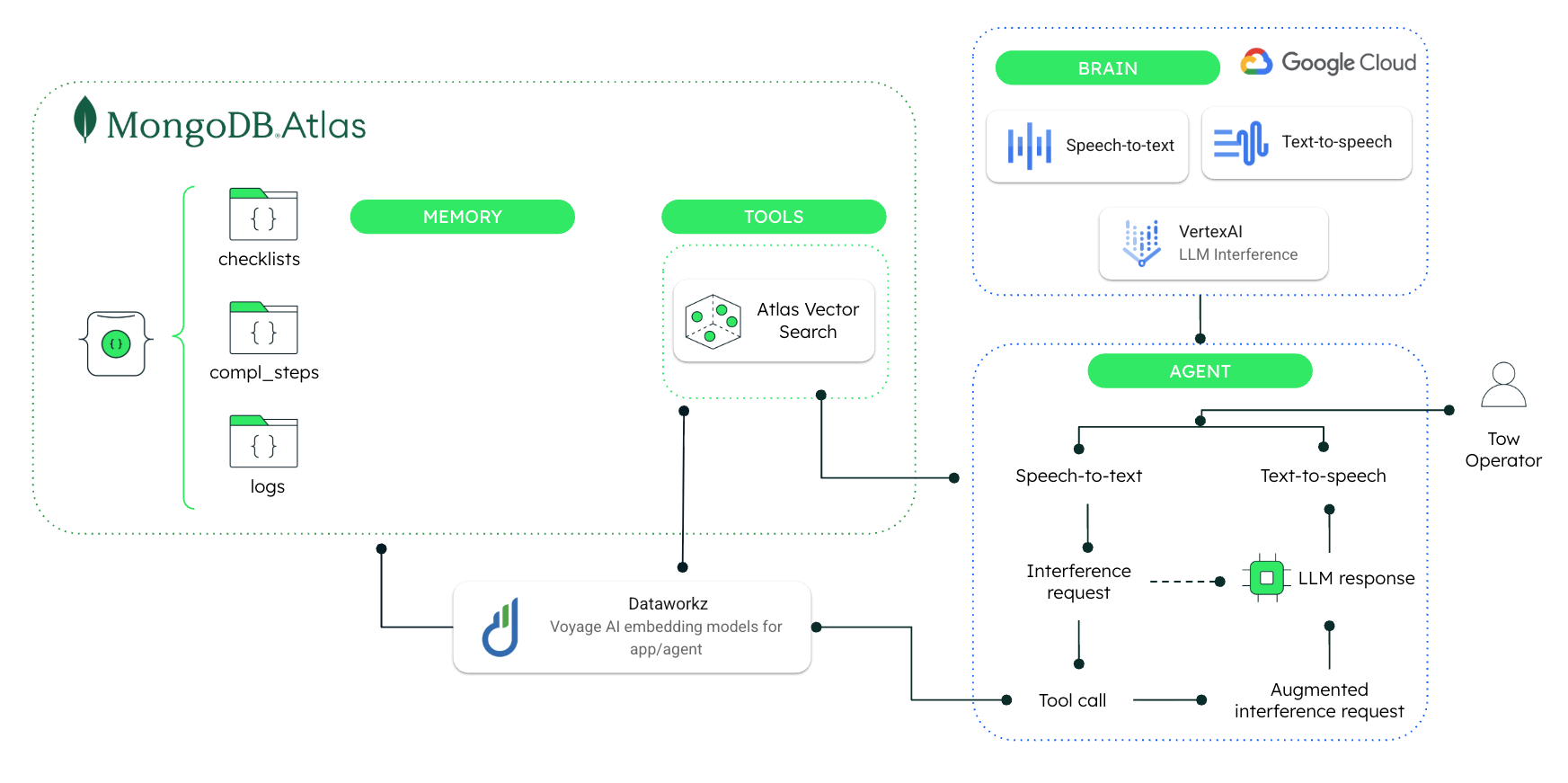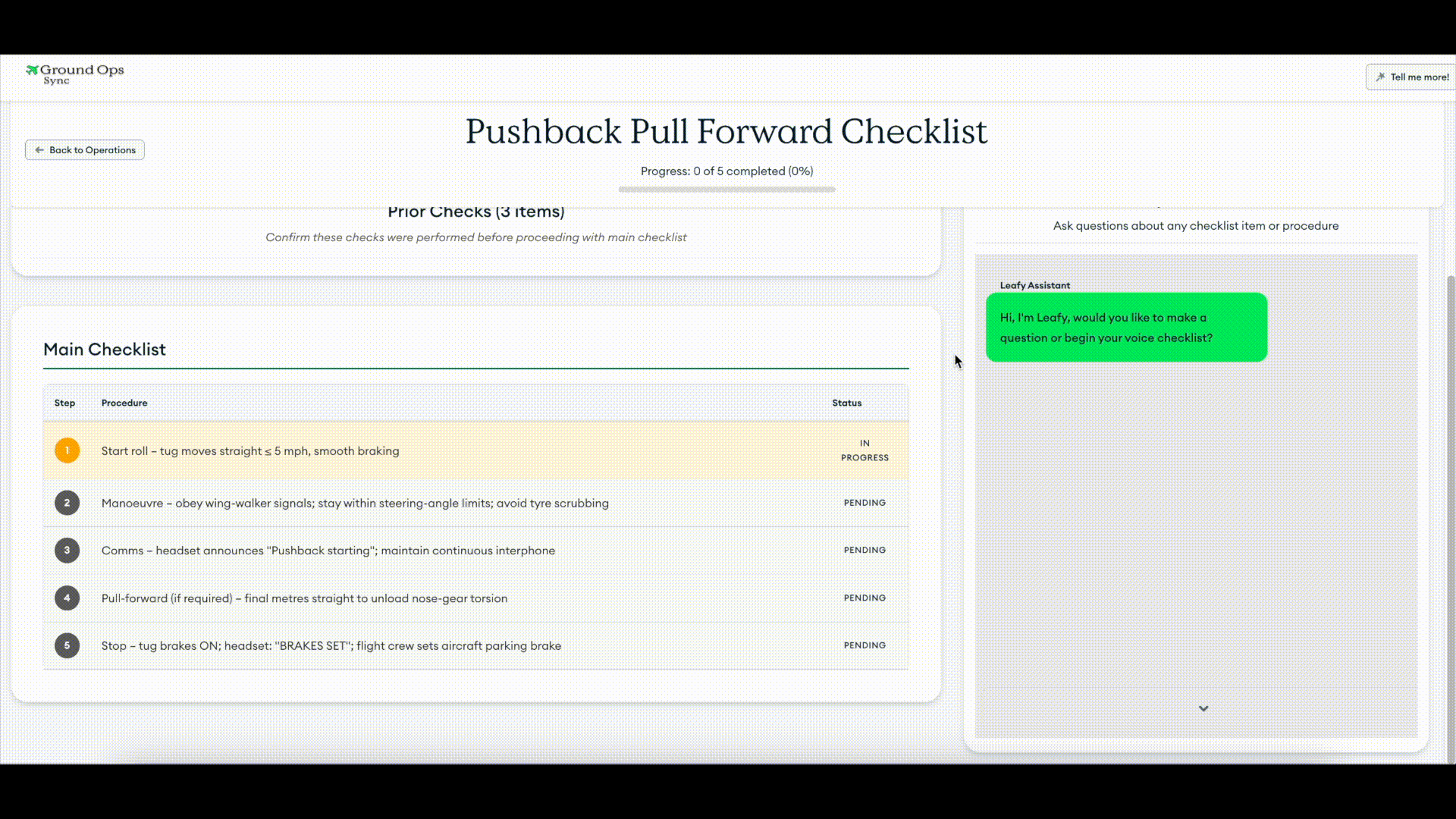In 2024, airports worldwide supported over 40 million flights.1 What these millions of flights translate to is intense activity on the ground, where in each and every flight, passengers, and pieces of cargo rely on a complex network of supporting operations. These include baggage and cargo handling, aircraft towing, refueling, catering, maintenance, and the coordination of various air-side vehicles.
A single aircraft turnaround can require a ground operations team of roughly 20 people. There is also the issue of less experienced staff often brought in to meet demand especially during peak travel seasons where operations move at an intense pace. In such conditions, the likelihood of human error increases, threatening the safety of personnel, the security of multi-million-dollar aircraft and support vehicles, and the overall efficiency of airport operations causing flight delays.
Flight delays remain one of the airline industry’s most persistent challenges. Approximately 30,000 flights are delayed each day, with each delay averaging 17.3 minutes. Not only is this a major inconvenience to passengers, but the operational impact is severe for the airline. For a widely used aircraft like the Airbus A321, a 15-minute delay during at-gate, taxiing, or en-route operations can cost airlines around €3,030 per flight (or roughly $3500). Across thousands of flights, the financial losses and cascading schedule disruptions are enormous.
We can address this issue via a data-driven transformation of ground operations. This blog post explores a smart airport operations application, powered by MongoDB Atlas and Dataworkz, that can optimize processes and prevent costly delays. Prevention is critical, particularly in environments where rising flight volumes are met with accelerated recruitment and limited training time.
The solution leverages Google Cloud and MongoDB Atlas to power an agentic voice assistant that guides operators through checklists, retrieves real-time answers from embedded manuals via Dataworkz’s powered retrieval-augmented generation (RAG) application, and logs every action for audit and optimization. Using Vertex AI for speech-to-text and text-to-speech capabilities and natural language processing, Atlas Vector Search for context-aware retrieval, and a flexible BSON schema for structured and unstructured data, the system enables natural and hands-free interaction that ensures compliance and increases operational efficiency.
Solution design
MongoDB provides a flexible, secure, and scalable database with high performance, making it perfectly suited for AI applications. Its document model allows for the storage of diverse and unstructured data, which is common in AI workloads containing contextualized-relevant outputs derived from integrated data, monitoring, and log files. MongoDB’s horizontal scalability ensures that large volumes of ground ops data are handled seamlessly, while its robust aggregation framework simplifies data manipulation for AI applications development.
Dataworkz serves as a managed RAG platform built for gen AI applications, providing an agentic AI framework and an AI-optimized data layer (ODL) foundation, enabling a comprehensive view through seamless data integration into MongoDB Atlas. This permits users to configure their sources and destinations by bringing together said data, processing, and performing AI/ML.
The Dataworkz platform also facilitates monitoring with audit capabilities through managed authentication and management of the application's lifecycle for production readiness, integrating various data sources via pre-built connectors. In the solution, Dataworkz manages the end-to-end RAG workflow, from ingesting and embedding technical manuals and regulations using Voyage AI models, to executing real-time, context-aware queries with MongoDB Atlas Vector Search for highly accurate information retrieval. Dataworkz’s RAG builder—with MongoDB as its core data infrastructure—empowers the voice assistant to seamlessly integrate the vast (and often complex) information contained within aircraft and airline safety manuals, transforming it into an easily accessible and actionable resource for the ground crew.
Figure 1 illustrates an architecture that integrates Google Cloud and MongoDB Atlas to enable an agentic voice assistant for operational checklists. MongoDB Atlas manages agent memory, including checklists, steps, and RAG-generated logs, while Google Cloud powers speech interfaces and large language model (LLM) inference via Vertex AI.

This solution addresses key requirements for improved operational efficiency. The following points outline in detail its core functionalities, benefits, and interdependencies through an adherence to regulatory framework needs:
Real-time information retrieval built with Dataworkz and powered by MongoDB Atlas Vector Search: When an operator asks a question (e.g., "Where can I find the Auxiliary Power Unit (APU)?"), the voice assistant doesn't just rely on pre-programmed responses. Instead, Dataworkz's RAG application intelligently queries the relevant sections of the embedded manuals and regulations in real-time, delivering context-specific answers. This process heavily leverages MongoDB Atlas Vector Search capabilities. When a user's question in Natural Language is sent to the Dataworkz RAG app, Atlas Vector Search then efficiently compares it to vectorized representations of the manual content, which are stored in a dedicated MongoDB collection tracked as logs from the operation session. This allows for a fast, contextually relevant retrieval of the most accurate and up-to-date information.
Natural language processing (NLP): Dataworkz employs advanced NLP capabilities to process both spoken and text-based queries from operators handled by Vertex AI. Additionally, it processes technical manuals, regulations, and other airline documentation using VoyageAI embedding models. MongoDB stores both the raw and vectorized text data from the manuals, streamlining operations. This data is readily accessible to be retrieved by the assistant to provide a context-aware response to the end user. This comprehensive approach enables a natural, conversational interaction, eliminating the need for operators to use rigid commands or specific technical jargon, ensuring a seamless user experience.
Checklists and MongoDB for audit trails: When an operator initiates a voice-assisted checklist, the application dynamically feeds the checklist items and associated procedural details directly to the voice assistant. As the operator confirms completion of each step, the system can provide instant validation, read next steps, or offer additional context from the manuals if a discrepancy is detected. Crucially, every aspect of session activity is meticulously logged and stored in MongoDB Atlas. Each session is represented as a single JSON document, providing a flexible schema structure to capture nested data. This includes not only the precise completion times of each session but also the session-specific data from checklists, represented as nested arrays of objects. Each object within the array details the completion status of every individual step from the selected checklist operation, session ID, and timestamp. This ensures a complete and accurate historical record of all operations, providing crucial insights for analysis, auditing, and continuous process optimization, both cost and safety-wise.
Data-driven insights via MongoDB: By providing immediate access to comprehensive and contextualized information, the solution can significantly reduce the training time and cognitive load for ground crews, by no longer needing to memorize every detail of every manual but can rely on the voice assistant as an intelligent, on-demand knowledge base delivering context-aware answers in real time. Additionally, detailed logs can also be used to identify areas where additional training might be beneficial or where manual content could be enhanced, enabling continuous optimization through data-driven insights.
Error prevention and compliance: The compliance of the solution steps transforms situations where hands are occupied into easily resolvable issues, minimizing possible risks of human error stemming from misremembered procedures or difficulty in locating information.
In the aviation sector, delays caused by ground operations quickly lead to significant financial strain on airlines. By combining MongoDB and Dataworkz, airport operations can be made faster, safer and more efficient. MongoDB’s flexible document model, real-time processing, and advanced vector search capability gives AI application developers the ability to provide accurate, voice-assisted guidance on demand, exactly when and where it’s needed.

Replicate this solution in your own environment following the step-by-step guide in our repository. To learn more about MongoDB’s role in the automotive industry, please visit our manufacturing and automotive page. Or, build your first Agentic workflows with Dataworkz.
1 IATA (February 26th, 2025) “IATA Releases 2024 Safety Report” Press Release No: 7. Montreal, Canada. Recovered from: https://www.iata.org/en/pressroom/2025-releases/2025-02-26-01/